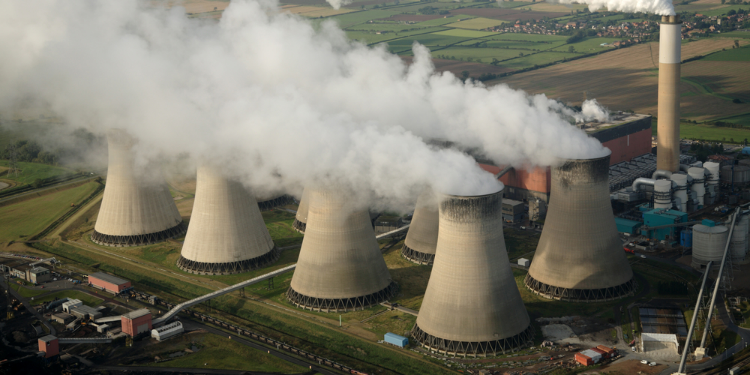In the past few years, more and more expats have been turning to countries prioritizing green sources of energy for a better quality of life and well-being, especially those coming from countries facing serious environmental issues.
Which countries are switching back to coal?
On June 19, Germany and Austria announced that they were switching back to energy produced from coal, followed by the Netherlands the next day. Rob Jetten, Dutch Minister of the Environment, considers this temporary step crucial for the economy. Dutch coal-driven power plants are back to full operation after being restricted to 35% to meet ecological objectives. Meanwhile, the German government relies on its backup power plants to ensure energy security for the population. Still, it reassured that this is only a short-term measure until it can get back to its 2030 objective.
Austria is also restarting its last power plant, which closed down in 2020, with the objective of being able to produce electricity from coal in case of emergency. For China, it is more of a dependence on coal, even though the country is investing massively in green energies, than an emergency. On April 20, the State Council agreed to a further increase of 300 million tons in coal production.
What are the reasons behind the resurgence of fossil energy?
The decision of Germany, Austria and the Netherlands is a reaction Moscow's ultimate pressure from Moscow. On June 14, Gazprom, the Russian energy giant, cut its gas deliveries by 40% for Europe. For Germany, there was a 60% cut). Officially, Russia says it's just a technical issue, but the truth is that several countries, including Finland, Denmark, Belgium, etc., are no longer provided with fuel. Russia seems to use energy as a means of pressure to compel countries to think about their stand. Germany, 55% dependent on Russian gas before the war, has already cut its imports to 35%. While Austria is 80% dependent on Russian gas (80%), the Netherlands only imports 15%. On average, EU countries are 40% dependent on Russian energy -- which is why they need to act, but without financing the war.
German Economy and Climate Minister Robert Habeck, an environmentalist, made the bitter but essential decision to return to coal to limit gas consumption. On May 22, he also presented his proposals to triple wind energy production by 2032, provided wind farm operators commit to protecting nature and endangered species.
For its part, China claims that the use of coal is an economic and social imperative. For the Chinese government, continuous power cuts as those in 2021 are no longer an option as these had significantly slowed down many companies and economic growth.
Which are the world's greenest countries?
Green Futur Index, ranking the world's greenest countries, is a valuable solution for travelers and expats who want to stay true to their values. But can this index be trusted blindly? Unsurprisingly, the 2021 edition is topped by Scandinavian countries. Iceland, Denmark and Norway rank 1st, 2nd and 3rd respectively, while France ranks 4th. Next are Ireland, Finland and Costa Rica. However, France's position in this index is doubtful as a few months earlier, the country had been blamed for its inconsistency in the fight against global warming. In reality, the Green Future Index rather assesses countries' commitments but without the facts.
Another index, published every two years by Yale University in the US, takes into account 24 criteria grouped into 6 categories: the amount of natural resources, water, air pollution, biodiversity, environmental health, and climate change. Iceland tops the 2021 edition as the world's greenest country thanks to concrete and measurable efforts by the government and citizens. Then comes Switzerland, especially thanks to its large number of green spaces, and Costa Rica, which is firmly committed to biodiversity. Norway, Mauritius and France are also in the top 10. Still, the ranking makes it clear that no country is entirely green. Most studies focus on governments' commitments, so you can't really rely on them to choose your next stop as an expat.
Why are more people keen on moving to green countries?
Over the past years, green energy has become a priority for many expats, but there are questions as to whether this actually counts in the choice of destination. For example, Australia, a land of immigrants, is also one of the world's largest coal exporters. Scott Morrison, the climate-skeptical former prime minister, had ambiguous ties to the coal industry. His stand has been criticized by both locals and expatriates, especially when the country faced deadly bushfires. But new Prime Minister Anthony Albanese has pledged to cut the country's carbon emissions by 43%.
Expats also wonder about the ways of going green. Asking yourself the right questions might be the key to this enigma: Does the country value local production or genuine organic farming? Is there a ban on plastic bags? What is the impact of urbanization? What about transportation (pedestrian paths, bikes, scooters, etc.), green spaces, and houses with gardens? What is being done to solve air pollution, overconsumption, overfishing, and intensive use of chemical fertilizers? Answering these questions can help you choose your next stop. Of course, there will be other factors to consider, but you shall have a few pointers regarding the quality of life you can expect.
















